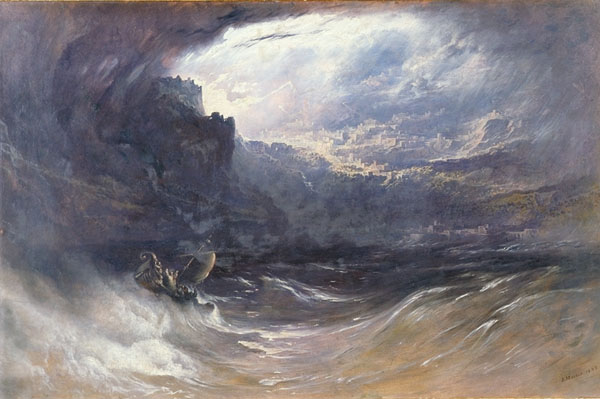Upon opening up this week’s Torah portion, we come across the famous story of the Flood. While there are many aspects of this story that demand much discussion, such as why a good God would kill the global population and whether the narrative could be reconciled with what we know about modern science, I wish to focus on a question that I feel is much more powerful.
Thanks to our current understanding of ancient religions, we have now uncovered tens of different flood stories from all over ancient Mesopotamia. Looking into one of these stories, the Epic of Gilgamesh, we see many parallels to the story. For instance, in both stories, God (or gods) wants to destroy the world with a flood and in both stories, a protagonist is saved along with his family and animals in a boat. When the waters subside, the man sends a raven and a dove to find land and, finally, upon being saved, the protagonist offers up a sacrifice which is accepted by God. (The parallels continue; interested readers should read the Epic in its entirety.)
These parallels raise a much larger question than those seemingly inherent within the biblical story. Historians think that the Epic is based on a much older story (ca.1600 BCE), which we now know was widely disseminated in Mesopotamia around that time. Based on such evidence, it would seem as if the Torah simply contains a copy of the story, with details changed. If the Torah is just a book copied from older sources, is there any point to studying it? Furthermore, even if we do believe that God wrote the Torah, couldn’t He have come up with a new, original story?
To answer this question, we must realize that the Torah is not a history book, but rather it is a book to guide us and show us how to act. I think that the Torah contains the same language and the same minute details from Gilgamesh to teach us a lesson far greater than what may have actually happened 4,000 years ago.
In the beginning of the Epic, the gods are said to want to destroy mankind because the humans were annoying them by making too much noise. This contrasts with the beginning of the biblical narrative, which states that God wished to destroy mankind because of moral corruption and a preponderance of robbery (Genesis 6:11-13). From this one idea, we can learn an interesting theological theme from the Epic: namely, that the gods are morally corrupt if they are willing to wipe out the world because of a little noise. However, when the Torah was written, the message that it was to convey through the Flood story was obvious: God would never destroy the world on a random whim, but rather when the purpose of the world is ignored. The point of the world, according to the Torah, is for man to act higher than animals, to act on a moral standard which brings out the godliness inside of us.
The biblical narrative of the Flood can therefore be viewed as an extremely important lesson about man’s duty in the world. It makes no difference if this narrative never actually happened or if the Torah contains a direct copy of an older story; what matter are the lessons we can take from studying it. If man acts morally corrupt than the entire point of the world is lost. In fact, from a philosophical point of view, it might as well be destroyed.
Shabbat shalom!
______________
This article is part of Ha’Am’s Friday Taste of Torah column. Each week, a different UCLA community member will contribute some words of Jewish wisdom in preparation for Shabbat.

